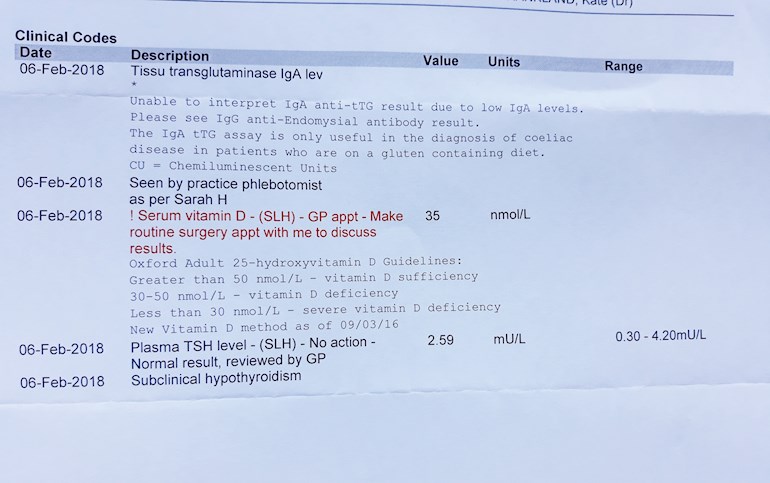I'm new here and am not on any treatment as yet for hypothyroidism. But am more than grateful for all the helpful and knowledgeable advice I have received here already.
I've had one full blood test on the 23rd January which I have posted previously but asked my doctor on the 6th Feb to also test me for Vitamin D; Coeliac; FT4 and FT3. These are the results. I really don't understand the Tissu transglutaminase lgA level result, and/or whether anything about FT4 and FT3 is shown here.
Also I wasn't expecting to be sent for my blood test straight after seeing the doctor at 10 a.m. on the 6th, and I had already had breakfast (which I did mention to her, as I was feeling bloated and sick)! I am now thinking these results may not be of any use because I did not fast.
My TSH level has dropped even more and is now showing as normal and subclinical hypothyroidism. My appointment with my doctor is on the 19th to discuss the results, but I'm worried she will pay more attention to my TSH result than the previous anti-body results. I believe my next full blood test will be the beginning of March, but I will definitely be fasting for that one!
My Vitamin D appears to be deficient. I did buy Vitamin D3:25ug last month but stopped taking them after three days...will these be sufficient to take now? I was worried that taking too much of any vitamin would be toxic.
I'd be very grateful for any advice and understanding of the first result.

 You're not thick for not getting this stuff straight off. None of us is born knowing it and not feeling well makes it hard to understand.
You're not thick for not getting this stuff straight off. None of us is born knowing it and not feeling well makes it hard to understand.